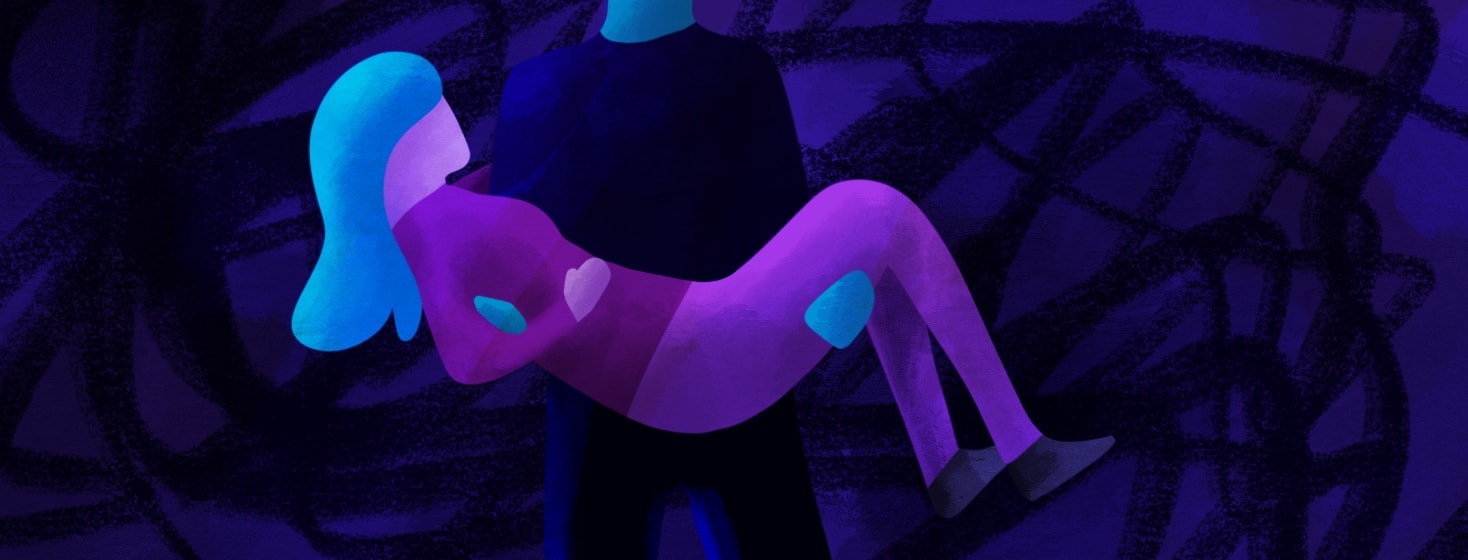Putting IBD Pain Into Words
Often those who don't have IBD ask, "What does the pain feel like?" If you're like me, it can be difficult to put into words. At the same time, the more we describe and articulate our patient experience, the better others are able to empathize and understand what our day-to-day life entails.
As a blogger, I've come to realize that the majority of the population is either unaware of what Crohn's and ulcerative colitis are or they think it's just a "bathroom disease." You and I both know it's so much more than that.
As someone who was diagnosed with Crohn's disease nearly 14 years ago, there are different types of pain I've experienced. Let's break it down so it's easier to digest.
Featured Forum
View all responsesAbdominal cramping
This can be a result of eating or drinking something that didn't sit well, to experiencing anxiety or stress that triggers pain.
Picture a kitchen utensil that is used to ball fruit for a fruit salad. Now imagine how that would feel if you scraped it across your intestines, over and over again, for hours. It's a deep gnawing pain – similar to menstrual cramps, but worse.
Pain on the toilet
Whether it's constipation or the complete opposite, oftentimes I find myself rocking in pain in the bathroom. The simple act of going number two can feel like cramping is going on in your intestines and through your butt.
I often have to take deep breaths, staring at a focal point on the wall, or look at my phone as a distraction in these moments.
Dealing with urgency
Urgency isn't so much a painful experience, but it's unique to those of us who have had surgery to remove intestine. The urge to go is on a whole different level. When nature calls, it's not to touch base, it's an emergency.
You feel the difference once your ileocecal valve is removed. That's the sphincter muscle valve that helps us "hold it". After my bowel resection surgery, I had an accident in my pants because I couldn't make it from the room across the hall to the bathroom in time.
It was absolutely mortifying for me. I will say this has improved greatly with time, but my ability to "hold it" is forever changed.
Bowel obstruction pain
This one takes the cake for me. I've had several bowel obstructions and each and every time the pain is so debilitating. I always vomit, I generally blackout, and sometimes I lose feeling in my limbs because of the shock of the pain that I'm going through.
It's a "stop in your tracks" type of pain. The moment I swallow food, I feel pain. The moment I drink anything and swallow, I feel pain.
Standing upright is so painful I often have to walk crouched over or have someone hold me in a cradle position. Picture how a groom carries his bride over the threshold. That's how my dad had to carry me out of his car into the hospital for one of my obstruction hospitalizations.
Post-operative pain
I've had 18 inches of my small intestine removed and have had two C-sections. First of all, recovering from a bowel resection is 10 times worse than a C-section in my experience. With a resection, part of my body was being taken out, and digestion was forced to recalibrate.
It took me about 2 months to recover, but even then I wasn't 100 percent. With my C-sections, I feel good as new about 2 weeks out. The incisional pain with abdominal surgery burns. If I laugh, cough, move my legs, I feel it.
I will say with each surgery I've had, recovery has gotten easier because I know what to expect. The best thing you can do is walk and build up your steps each day. Don't overdo it, but make sure you move and get your body back in motion.
If you have IBD or if you know of someone who does, these are a few examples of what our experience is like. The number of days I've dealt with abdominal cramping but slapped a smile on my face to disguise it, are too many to count.

Join the conversation